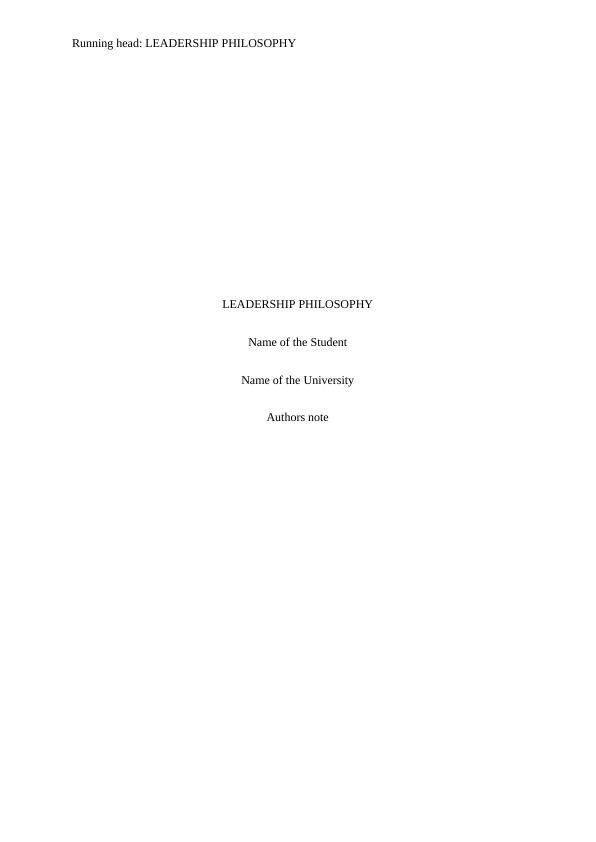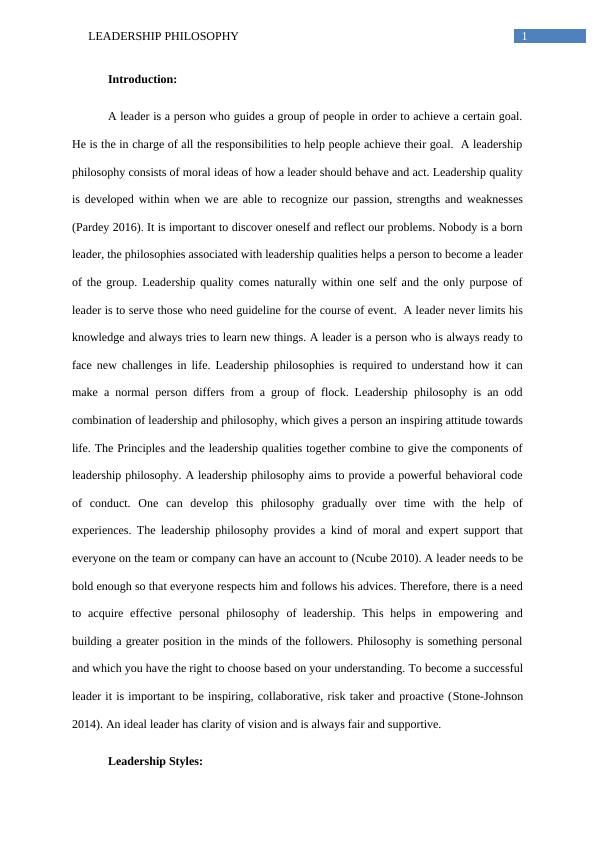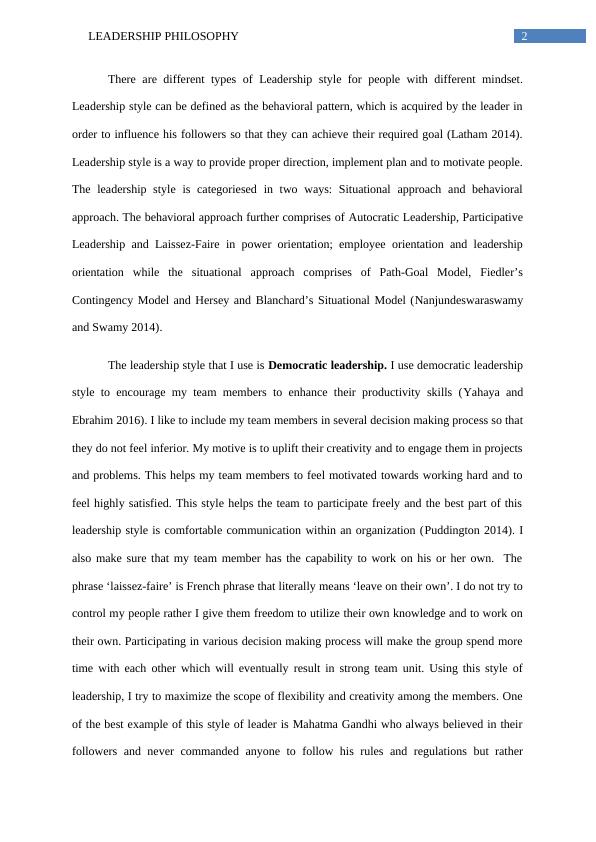Leadership Philosophy
10 Pages2730 Words80 Views
Added on 2023-01-13
About This Document
This article discusses the concept of leadership philosophy and its impact on effective leadership. It explores different leadership styles and principles for successful leadership. The article also addresses common leadership issues and provides recommendations for overcoming them.
Leadership Philosophy
Added on 2023-01-13
ShareRelated Documents
End of preview
Want to access all the pages? Upload your documents or become a member.
Leadership Philosophy: Overview, Styles, and Application
|11
|2841
|44
MY MANAGEMENT AND LEADERSHIP PHILOSOPHY
|4
|663
|20
Leading and Managing Teams
|11
|697
|150
Report on Richard Branson & His Leadership Style
|8
|1749
|294
Leadership in Organizations: Essay
|10
|2549
|67
Study on Leadership of Mark Zuckerberg
|6
|1737
|241



